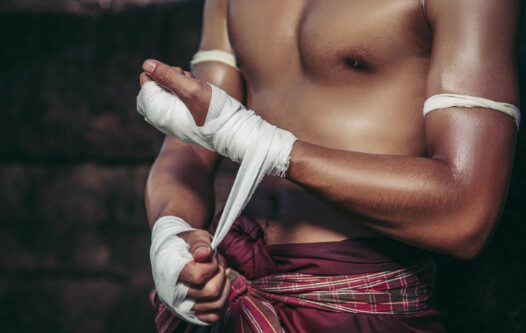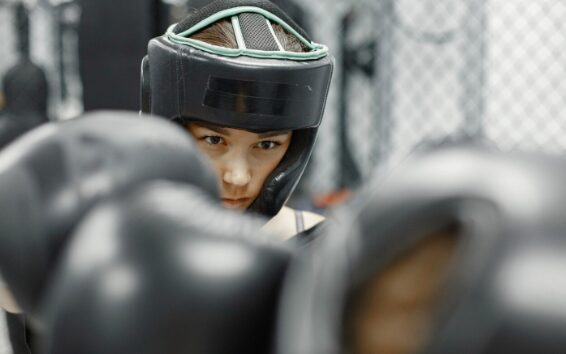Dhaka’s poverty compels children to fight and shapes the way they do so. In small, congested neighborhoods, boxing and powerlifting serve as survival aids. Each session is individual—no posh health clubs. No sponsorships. Righteousness in empty rooms, banged-up knuckles, and local pride, which is more valuable than any medal.
Economic Hardship as Motivation
Training has been the only way out of the day-to-day struggle of most fighters in the poorest regions of Dhaka. When you can’t pay for lessons, you’re negotiating with sweat while checking a betting site for odds on your local hero. Boxers and powerlifters often skip meals to afford wraps or chalk. To most people, it is either they make weight or they eat dinner.
No one is entering million-dollar deals here. Instead, they are after local tournaments with little prizes that could only pay a month’s rent. The starvation is physical. Coaches are aware of it. Competitors are aware of it. It creates the ability to focus, and there is no time to give excuses, only work that is like survival.
Community Gyms and Local Heroes
The local gyms are not refined centers; they are busy rooms with broken floors and without air conditioning. However, they create loyalty and pride, which is motivated by local legends who remain to educate the future generation. Here, fighters appreciate the people who train, give advice, and even celebrate even the minor achievements.
Such gyms have their heroes:
- Past champions who never quit and coach at no cost.
- Young warriors who fight with anybody to prove their limits.
- The owners of gyms who scrounge to purchase absolute weights.
It is local, raw, and personal. No marketing. The mere thought is that those who are hard enough to remain should get an opportunity.
Training Realities in Poor Neighborhoods
The low-income neighborhoods in Dhaka serve as the training grounds for fighters who are subjected to conditions that require brute strength. Gyms are tight, cold, and bare-bones. There is no fancy equipment. No freebies given by sponsors. The warriors are struggling to get by, demonstrating their ability to thrive in harsh environments that do not allow for error.
Improvised Equipment and Spaces
Standard benches and racks are not available in most gyms. Lifters instead utilise cement-filled barrels and corroded iron rods. Tape is used to fix the punching bags, and sawdust or rags are added to make them usable. The training takes place in the alleys or on the rooftops, where space is inexpensive and nobody complains.
The crowded rooms compel the athletes to share, with no individual coaching and special treatment. In 40-degree heat, the fan breaks, and fighters learn how to resist distractions and work even harder. These bare-bones systems mold them into versatile, unstoppable athletes who are ready to hustle to gain any advantage.
Coaching and Peer Support Networks
The coaching in this instance is either free or offered in exchange. Trainers can be former boxers who are retired or older lifters who want to keep the gym alive. They do not guarantee you huge earnings, but they can equip you with skills that are applicable in real fights. The discipline is not imposed through contracts, but rather through reputation and respect.
The peers serve as sources of encouragement, training partners, and worst critics. Nobody misses those who miss reps or who do not spar. It is through common struggle that bonds are built, and hence, loyalty is more potent than a membership fee. Such social connections mean that nobody can get away with doing nothing, and it maintains high standards even in the absence of money.
Cultural Pride and Identity
Boxers are local personalities that people bet on in underground arenas, and winning battles is crucial as they demonstrate discipline that is lacking in everyday life. Pride, in this case, is not tender-hearted, but what prevents young lifters from taking the path of petty crime or drugs.
Societies support such athletes since they are a symbol of resistance towards a lack of choice. The fact that a powerlifter who grew up in a small and overcrowded gym is a champion proves that poverty does not determine talent. These victories do not put many people into the spotlight, but they create a personality that cannot be ignored. That honor is exchanged with loyalty so that fighters continue to train without a visible payday on the horizon.
The Future and Career Aspirations
Aspiring warriors pursue an opportunity to become members of national teams or find sponsors who will support raw talent. Some of them aspire to participate in international competitions, where even small prizes can transform the family’s economic situation. These fantasies sustain them on a day-to-day basis as they strive to move up from small-time competitions and prove they have a place on the bigger stages.




































